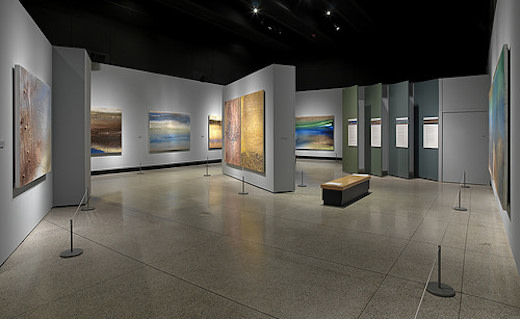Before anyone even knew just how badly the Democrats would get trounced in the 2014 midterm elections, some pundits were already sending the party a message: Be more like the Republicans.
Now they don’t put it that way, exactly.
The professional campaign watchers like to say instead that the Democratic Party needs to move to the “middle” or the “center.” What they mean is that the Democrats should get closer to the Republicans on the issues.
Think about this for a second.
The turnout for the mid-term elections was the lowest for a mid-term in 70 years. Can we really expect more people to get excited about voting if the two major political parties become more like one another?
It doesn’t make much sense, but that’s Big Media’s remedy
For example, after Senate Democrats voted to give the populist Sen. Elizabeth Warren, of Massachusetts, a leadership role in their caucus, CBS host Bob Schieffer said that it was “going to leave the impression that the party is moving to the left,” when the advice from “a lot of people” is that nothing will get done in Washington unless “both parties move toward the center.”
USA Today actually recommended that Barack Obama steal an idea from post-Iran/Contra Scandal Ronald Reagan and apologize on TV. What for? The newspaper didn’t say.
The problem, as The New York Times saw it, was that the Democrats had gone too far to the left under Obama: “Democrats largely abandoned the more centrist, line-blurring approach of Bill Clinton to motivate an ascendant bloc of liberal voters,” the paper insisted.
But that’s a dubious description of Obama-era Democrats.
On foreign policy, after all, the White House has escalated the war in Afghanistan, carried out drone attacks on several countries, helped engineer a disastrous Libyan War, and is now going back into Iraq.
The centerpiece of Obama’s domestic policy, meanwhile — the Affordable Care Act — was borrowed from Mitt Romney, who established a similar initiative as the governor of Massachusetts. And the law’s “individual mandate” to buy insurance was first cooked up by the right-wing Heritage Foundation.
But if that’s what the media considers veering left, what do Beltway insiders think that the White House should do to make up for it?
For them, the first order of business is, well, big business: Obama should push through the secretive, corporate-friendly Trans-Pacific Partnership trade deal. People who actually turned up to vote must find this peculiar, since almost no one was talking up the deal before Election Day.
What else should Obama do, according to these pundits? Approve the highly controversial Keystone XL pipeline, which would pump dirty tar sands oil from Canada down to the Gulf Coast for refining.
Why would a president who says he cares about the climate crisis do this? To be more bipartisan, apparently.
Does any of this sound like the message voters were sending?
Not at all.
In fact, one of the most intriguing findings to come out of the 2014 exit polls was that the majority of voters think that the economic system favors the wealthy: 63 percent of respondents said so, up from 56 in 2012.
This would suggest that a more vigorous brand of economic populism would resonate with voters — even if the pundits would hate it.







